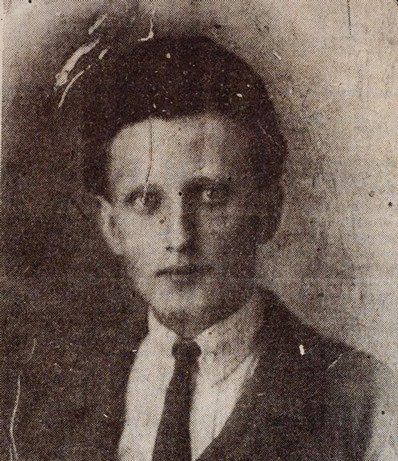THE TRAM
It races,
carrying eleven meetings,
a lady’s purse,
a separation’s grief,
seven briefcases,
eight belated greetings,
and a beetle
on a jacket’s sleeve.
In a hurry,
multiplying noises,
it slices through the evening,
young and cruel.
It rings —
and suddenly the distance
rushes carelessly
to meet the bell.
It carries in it
singing in a bundle,
a report in trousers,
pressed and grey,
a drunken nose
(in the wrong direction),
a woman’s eyes —
that pair of wily grapes.
It carries in it
all the wound-up hours
of every watch —
on wrists and pocket chains.
It hurries
to prove a thunderous theorem
on the outright
greatness of straight lines.
Someone steps
on a pilot’s foot —
what an insult
to the friend of clouds!
Blindly paving
a hard and level road,
rolls a sphere
of some three hundred pounds.
And the tram
cuts the evening faster.
What a joy
to ring and rush and ring!
Both the corners
and the streets come closer,
running up
to stare in wonderment.
It carries in it
a smock to a convention
and two lovers
to a moony haze.
On my foot
I feel the sudden pressure
of a home
for many families.
And the summer’s
clinging to the handrail —
with each jolt
it casts stars to the sky…
“Hey, conductor,
how much for two tickets?
Tonight
it’s my poems and I.”
1932
The Russian poet YURI KAZARNOVSKY (1905 – ca. 1960) was born in Rostov-on-Don. In 1927 he was arrested, along with 11 other students, for participating in a subversive literary circle; he spent four years in the Solovki prison camp (1928 – 1931), where he contributed poems to the camp’s literary journal, and another year working on the construction of the White Sea-Baltic Canal. He was released in 1932 and published one collection of poems in 1936, but was arrested again in 1937. Kazarnovsky may have been one of the last people to see Osip Mandelstam alive; the poets were housed in the same barracks at a transit camp near Vladivostok. After serving another four years in Kolyma (1938 – 1942), he was sent to work as a health inspector at the camps in Mariinsk, Siberia. Two years later he moved to Tashkent, where he descended into drug addiction. He was presumed to have died around 1956, but it was recently established that he lived at least another four years in Moscow, in abject poverty, and exchanged a number of letters with one of the major Soviet poets, Ilya Selvinsky (1899 – 1968). “The Tram” is drawn from Kazarnovsky’s 1936 collection. It reverberates with wit and the joy of invention. The poem’s lightness and brightness seem so incongruous with the cruel facts of Kazarnovsky’s life, but might in fact explain how he managed to withstand those facts.
About the Translator:
BORIS DRALYUK is a literary translator and the Executive Editor of the Los Angeles Review of Books. His recent translations include Isaac Babel’s Red Cavalry (Pushkin Press, 2015) and Odessa Stories (Pushkin Press, 2016). He is the editor of 1917: Stories and Poems from the Russian Revolution (Pushkin Press, 2016), and co-editor, with Robert Chandler and Irina Mashinski, of The Penguin Book of Russian Poetry (Penguin Classics, 2015). His website is bdralyuk.wordpress.com.
